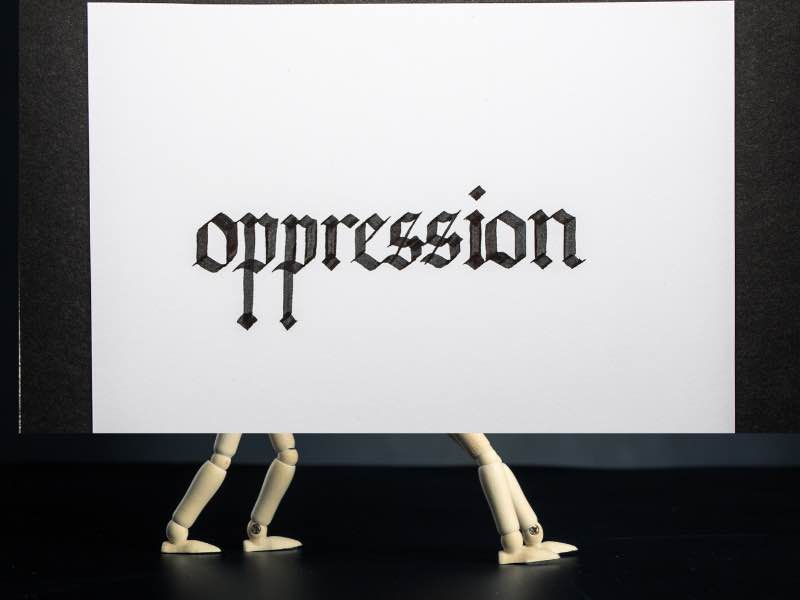Help ! Help ! I’m Being Oppressed? What Counts as Oppression of Minority Shareholders?
by Lavinia Kumaraendran & Sean Tan Yang Wei ~ 9 April 2020


Lavinia Kumaraendran
Email: lkk@thomasphilip.com.my

Sean Tan Yang Wei
Email: tyw@thomasphilip.com.my
INTRODUCTION
As companies are often owned by several shareholders, a fundamental rule in the governance of a company is the “majority rule”. This means that the decisions which need to be made in a company are made based on the majority vote of its members (or in some cases, a supermajority vote). This enables a company to function without requiring the unanimous agreement of all shareholders.
However, this creates a fundamental problem as the interests of minority shareholders (shareholders who own less than 50% of the shareholding) may be ignored by the majority. In some situations, the majority may even abuse their position in order to actively harm the interests of minority shareholders.
Oppression of minority shareholders often occurs in private companies since shareholders are unable to sell their shares easily on an open market in order to exit the company. As such, the oppression remedy under Section 346 of the Companies Act 2016 is aimed towards providing a form of protection to minority shareholders facing oppressive acts.
WHAT COUNTS AS OPPRESSION?
Despite the arguably simple concept, defining what constitutes oppression is difficult. For instance, Section 346(1) of the Companies Act 2016 states as follows:
“Remedy in Cases of an Oppression
346.(1) Any member or debenture holder of a company, may apply to the court for an order under this section on the ground –
- That the affairs of the company are being conducted or the powers of the directors are being exercised in a manner oppressive to one or more of the members or holders of debentures including himself or in disregard of his or their interests as members, shareholders, or holders of debentures of the company; or
- That some act of the company has been done or is threatened or that some resolution of the members, holders of debentures or any class of them has been passed or is proposed which unfairly discriminates against or is otherwise prejudicial to one or more of the members or holders of debentures (including himself).”
With the wide wording employed in the statute, it is clear that the categories or examples of actions which would constitute oppression are not closed or limited. Having said that, oppression of minority shareholders usually occurs when an act of the majority infringes upon the rights of the minority shareholders. Usually, this involves actions which are unfair or actions which depart from standards of fair dealing[1].
Oppressive conduct can be found where the complainant can demonstrate that the majority was aware of the complainant's rights and interests but has deliberately chosen to ignore or act against those interests.
As it is hard to define what actions count as oppression of minority shareholders, it is important that we draw examples and lessons from case laws which have examined this question. Here are several common examples of what the Courts have found to be oppressive conduct against minority shareholders.
Breach of Legitimate Expectation to be Involved in Management
A common ground for a complaint of oppression is found when the majority denies the minority its legitimate expectations that they will be involved in the management of the company. This often occurs in small private companies These legitimate expectations are often found when a company is formed by shareholders with an understanding that parties will be able to be involved substantially in the management and running of the company. As such, where a minority shareholder is excluded or removed from management without cause, an act of oppression would have occurred.
In Tan Kian Hua v Colour Image Scan Sdn Bhd[2], the High Court found that removing a minority shareholder from management when there is an agreement that the said minority shareholder would be involved in the management of the company would be an act of oppression. Similarly, the Singapore High Court also found oppression in the case of Tan Choon Yong v Goh Jon Keat and Others and Other Suits[3] where the majority directors had arranged for the removal of the company’s minority shareholder as the CEO and director of the company for ulterior motives. The Court had found that the former CEO and director had a legitimate expectation that he would have a major role in running the company.
Misappropriation of Company Assets and Other Breaches of Fiduciary Duties
Another common act of oppression is where majority director-shareholders misuse their power to divert assets of the company to themselves or to use the company’s assets in a manner which does not benefit the company. This is an act which infringes upon the rights of the minority shareholders as all shareholders are entitled to have the company’s assets be used for the benefit of the company and all shareholders.
For instance, in the case of English Case of Scottish Co-operative Wholesale Society Ltd v Meyer [4], the Court found that the actions of its majority director-shareholders who used their power to transfer the company’s business away from the company, causing the depreciation of the company’s shares, were found to have committed an act of oppression against the minority shareholders.
However, it should be borne in mind that the Court will examine whether the alleged misappropriation was one which could have been prevented if the minority had undertaken their due diligence. For instance, the Court of Appeal in Wang Chih Tsang & Ors v Cheng Pi Chun [5] did not find that the majority had committed an act of oppression through misappropriation as the transactions undertaken by the majority could not have been done without the knowledge of the minority (the minority shareholder, in this case, was also a co-signatory of the company cheques).
Mismanagement
Following the above, it is also possible for oppression to be found where the majority shareholder-directors have mismanaged the company to the detriment of the minority. In Ng Chee Keong v Ng Teong Kiat Highlands Plantations Limited[6], the Court found that the indifferent conduct of the majority directors which allowed the company’s tea plantation to deteriorate from a profitable concern to the brink of insolvency clearly show that the affairs of the company were being conducted in an oppressive manner.
Non-payment of Dividends
While the general rule is that a shareholder has no automatic right to dividends, there are certain cases where the conduct of the majority in refusing to declare or pay out dividends to its shareholders would constitute oppressive conduct.
For instance, it is common for smaller companies to not declare dividends as all director-shareholders are usually paid salaries. However, the non-payment of dividends become oppressive when a shareholder is removed from management as that said shareholder loses their ability to receive any financial entitlement from the company. In Re Gee Hoe Chan Trading Co Pte Ltd[7], the High Court found that the refusal of the directors to declare dividends to the company’s shareholders was oppressive conduct, particularly since the directors continued to pay themselves substantial salaries. Similarly, in the Australian decision of Shasallah Holdings Pty Ltd v CBD Refrigeration & Airconditioning Services Pty Ltd[8], it was held that the directors had committed an oppressive conduct when they failed to revise the company’s dividend policy while increasing their own remuneration at the same time.
Oppressive Conduct of Board / General Meetings
Another example of oppressive conduct occurs when the directors of the company opt to conduct the board / general meetings of the company in a manner which is unfair to the minority shareholders. For instance, the directors are acting oppressively if they decide to deliberately schedule a meeting at a time when the minority shareholders are not able to attend[9], or when the directors deliberately caused the notice period for such meetings to be insufficient[10].
Such actions are oppressive as they completely undermine the rights of minority shareholders to participate and vote at such meetings.
WHAT LESSONS CAN BE DRAWN?
As can be seen above, there are myriad instances where the courts could find that oppressive acts have occurred against the minority shareholders of a company. It must be borne in mind however that the courts often assess the actions complained of collectively and not individually when attempting to determine whether or not oppression has occurred.
It is also clear that majority shareholders must always attempt to act as fairly as possible when considering the rights and interests of minority shareholders. While their interests may not always align with the interests of the majority, majority shareholders should not act rashly to punish the minority.
As for minority shareholders, it is important to be able to identify when their rights and interests are being discriminated or infringed upon unfairly while keeping in mind that not every decision that goes against the minority would necessarily count as an act of oppression. After all, in matters of corporate governance, the majority rules.
[1] Kumagai Gumi Co Ltd v Zenecon-Kumagai Sdn Bhd [1994] 2 MLJ 789
[2] [2004] 6 CLJ 174
[3] [2009] 3 SLR 840
[4] [1959] AC 324
[5] [2018] 2 MLJ 777 applying Re Five Minute Car Wash Service Ltd [1966] 1 All ER 424
[6] [1980] 1 MLJ 45
[7][1991] 3 MLJ 137
[8] (2001) 37 ACSR 346
[9] Chew Sang Hai v Intan Kinabalu Sdn Bhd & Ors [2012] 3 MLJ 244
[10] Chow Kwok Ching v Chow Kwok Chi and Others and Other Suits [2008] 4 SLR 577